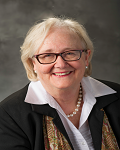
Marie T O’Toole
Rutgers University, USA
Title: Dual degrees and international collaborations: Best practices
Biography
Biography: Marie T O’Toole
Abstract
Statement of the Problem: Health is a global concern. Diseases cross international boundaries, as do health care providers. There is a worldwide shortage of nurses prepared to respond to the needs of diverse populations both locally and globally. The Bologna Accord is an educational reform movement that profoundly influenced nursing education in the European Union. The need for more information on this and other programs that support cost-effective models and mechanisms encouraging global collaborations that prepare a well-educated global workforce is critical.
Methodology: A consortium of academic institutions from the United States and the European Union worked collaboratively to explore funding mechanisms in both governmental and non-governmental agencies that support the preparation of health care professionals for international educational activities. Long-term follow up of participants in existing programs was conducted via social media outreach, personal communication and interviews with both faculty and student participants.
Results: Best practices for the creation of sustainable international partnerships that advance the preparation of a global workforce exist. Those practices include internal and external funding to support collaboration, the development of a degree program that does not extend the length of study for participants and exchanges that specifically address the need for knowledge, skills and language capabilities that prepare students for practice in multiple settings. Opportunities also exist for nurses in practice to participate in meaningful global outreach with appropriate educational preparation.
